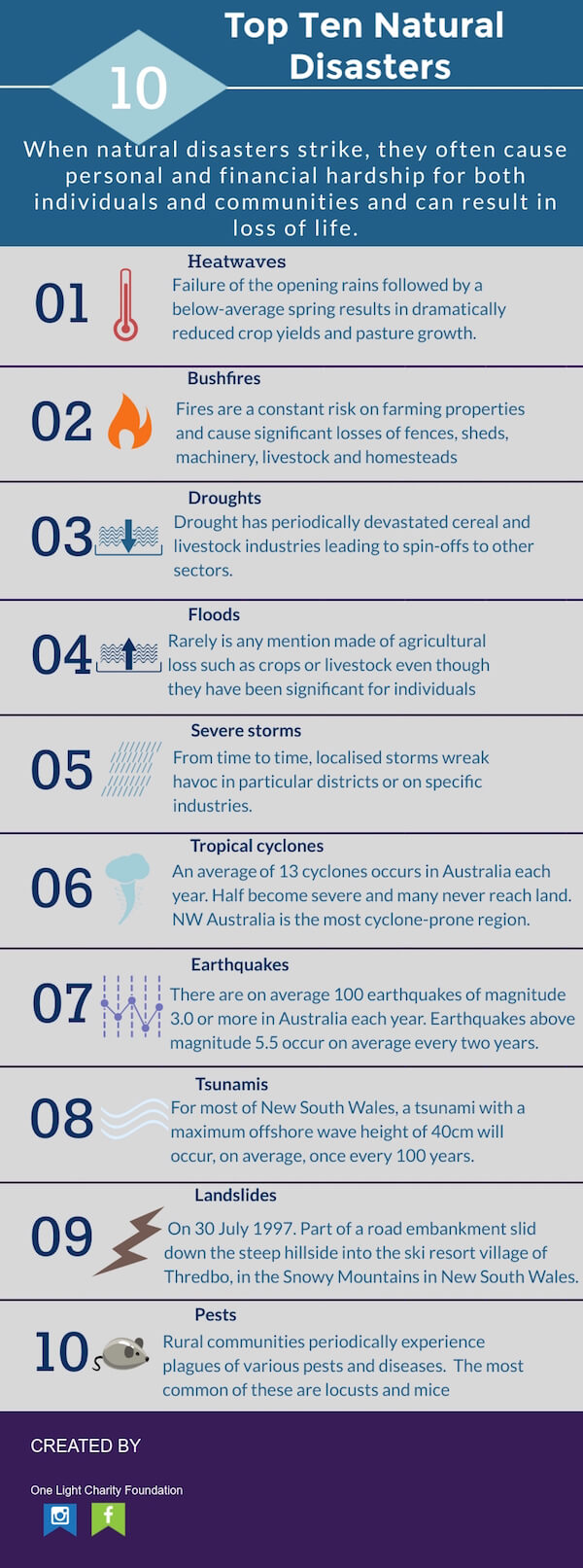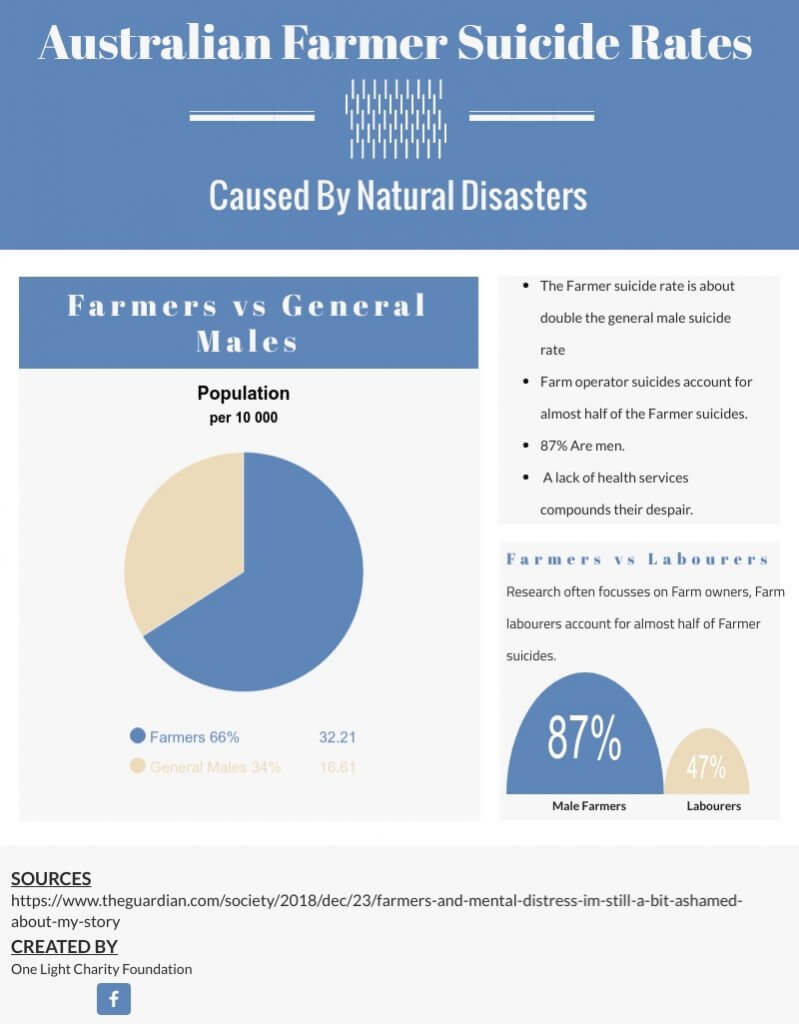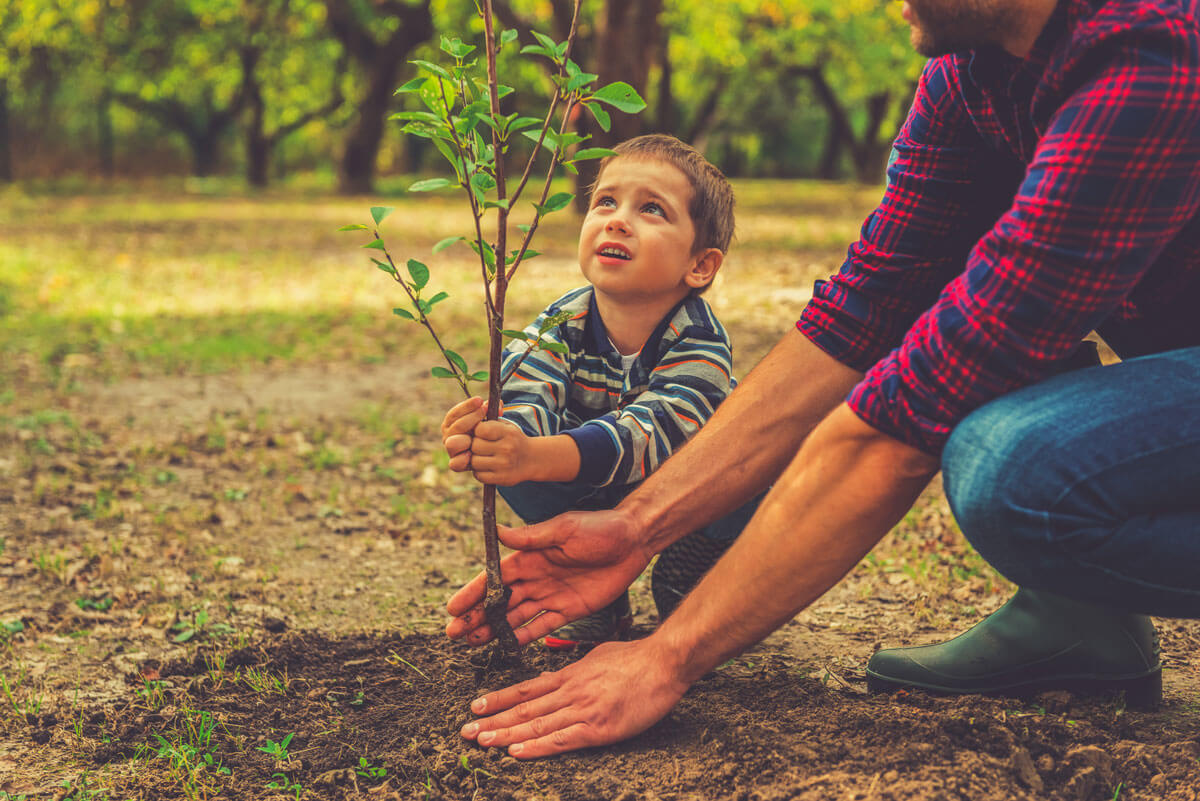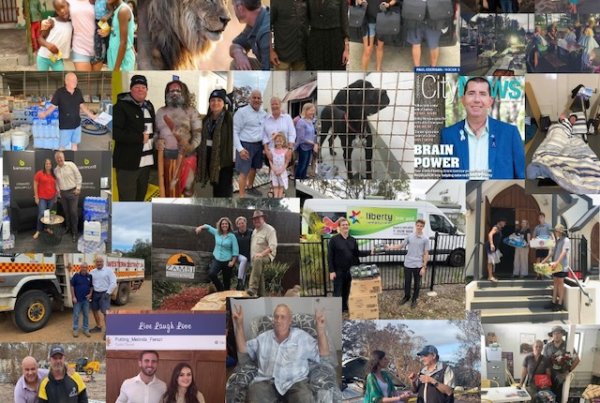Natural Disasters cause personal and financial hardship
When Natural Disasters Strike, they often cause personal and financial difficulty for both individuals and communities and can result in loss of life.
Common feelings include shock and fear (for the safety of family and friends or of a similar disaster happening again). Other emotions of anger, helplessness and sadness are also prevalent. Some of the victims might even experience feelings of shame. They feel that they expose themselves as helpless, emotional and needing others. Many have feelings of guilt for not having reacted as they might have wished.
When animals and pets die during natural disasters, it has a devastating impact on the wildlife and the people who rely on them for companionship and economic status.
Infographic Of The Top 10 Natural Disasters
Natural Disasters have struck Australian agriculture in several ways since colonisation. They can be very local and wreak enormous damage to a few farms in a small area or extend across the whole State.

Australian Weather And Climate
Farming communities always live with the risk of Natural Disasters. Farmers are often said to operate in one of the riskiest environments in the world.
While farming businesses face many sources of risk, the variability of Australian weather and climate is one of the most challenging threats to manage. Extreme weather conditions cause greater exposure of stock and crops to heat-related stress and diseases. Farming communities always live with the risk of natural disasters.
The Human Impact of Natural Disasters
One of the most immediate effects of Natural Disasters is population displacement. When countries experience earthquakes or other powerful forces of nature, many people have to abandon their homes and seek shelter in other regions. A massive influx of refugees can disrupt the accessibility of health care and education, as well as food supplies and clean water.
Health Risks
Aside from the apparent immediate danger that Natural Disasters present, the secondary effects can be just as damaging. Severe flooding can result in stagnant water that allows breeding of waterborne bacteria and malaria-carrying mosquitos. Without emergency relief from international aid organisations and others, death tolls can rise even after the immediate danger has passed.
Food Scarcity
After Natural Disasters, food often becomes scarce. Thousands of people around the world go hungry as a result of destroyed crops and loss of agricultural supplies, whether it happens suddenly in a storm or gradually in a drought. As a result, food prices rise, reducing families’ purchasing power and increasing the risk of severe malnutrition or worse. The impacts of hunger following an earthquake, typhoon or hurricane can be tremendous, causing permanent damage to children’s development.
Emotional Aftershocks
Natural Disasters can be particularly traumatic for young children. Confronted with scenes of destruction and the deaths of friends and loved ones, many children develop post-traumatic stress disorder (PTSD), a severe psychological condition resulting from extreme trauma. Left untreated, children who have PTSD can be prone to lasting psychological damage and emotional distress.
Community Recovery
Over the last century, the Department of Agriculture has played a crucial role in coordinating community and Government responses to Natural Disasters. Providing technical advice to farmers on how to deal with particular abnormal circumstances and supported communities during the recovery phase.
From time to time, State and Commonwealth governments have provided financial support to rural communities during recovery from Natural Disasters.
Impact on Farmers
Many farmers are in debt because the price of agricultural produce has fallen. There’s very little support in the outback, far from the big cities like Sydney and Melbourne. Some see death as the only way out.
When a farmer is facing the possibility of losing the farm, it is devastating. Giving up the profession he has done all his life is overwhelming. They lose their identity. Many small farmers have no choice but to borrow money or sell their farms.
Facts about the suicide rate for Australia’s farming men caused by a Natural Disaster

We came across this farmers' story of anxiety, fear and resilience
Joe Meggetto, a dairy farmer, says that at various points throughout his life he’s wandered his farm with persistent thoughts of suicide.
I had my three boys
He would sit in a paddock after milking and sob. Loneliness and the day-to-day pressures of farming were grinding away at him. “There were some bloody dark times there,” he says.
“It got to the stage where once Michelle, my wife, invited my best man around and we talked. That’s, for me, what got the ball rolling. My experience is, in the end, I had my three boys, and I wanted to seek help.”
Male macho mentality
Talking about mental health hasn’t come easy to the 52-year-old. What Meggetto calls the “male macho” mentality, alongside an initial reluctance to seek formal services, has made it difficult to speak out. But having now received support, he advises fellow farmers and farmworkers to take that first step.
Farmer distress and suicide
Meggetto is one of the many farmers at risk across rural Australia. The combination of drought and the resulting economic malaise in farming has led to a crisis of farmer distress and suicide.
The way services are delivered needs to address the rural communities' unique needs
While the farming community works to break the stigma of mental health, the lack of access to resources continues to have a detrimental impact. Once a farmer decides to seek help, where do they go?
They don’t want to see people in a suit
People who struggle with mental health, don’t want to go and see a person in a suit in an office. They want to see people who’ve got their feet on the ground and understand every single working side of agriculture.
Suggestion from a farmer
“One farmer suggests dairy companies should employ a psychologist who can aid farmers who experience mental distress, especially in times of drought. “I don’t think any farmer has any respect for a city slicker coming out and telling them how their life should be.”
Prevention networks
There are community-led programs that aid people experiencing distress and extend to significant awareness-raising events.
Urban people usually have choices. When rural people see suffering, they create a network to support members of their community. These networks are born from grief, but also [speak] to hope. Wanting to make things better in the communities they live in and support their peers.
Calendars
Australia’s Primary Health Network (PHN) create schedules for people who are experiencing mental illness. Identifying themselves in the stories and come to an understanding that they’re not alone. These experiences are not exceptional. It’s not about individual failure or inability to cope; it’s about the stressful lives that farm people lead.
Local contacts and support groups
Chez Curnow, the manager of mental health and alcohol and other drugs at Country SA PHN, echoes this thought. I hope that [these stories] generate discussions around the water trough, in sheds, at the kitchen table and over the farm gate. The promotion of mental health and wellbeing is in everybody’s interest and reducing stigma and prejudice can encourage people to seek help.
People often tell us they do not know where to go for help. So importantly, the calendar has a range of local contacts for wellbeing and mental health supports available in their region.
Social media
Thanks to social media, urban Australia is waking up to the realities of farmer distress caused by natural disasters. During the last drought, people knew very little in urban areas. The complications of drought only hit the city when water restrictions apply to their gardens.
Starting to be an understanding
Since that last drought, farmers have spoken up on social media like never before. More urban people are hearing about some of the stressors that farmers are experiencing. They see some of the photos of dry earth where nothing is growing. Now they learn about the difficulties of feeding animals? There’s starting to be an understanding.
Please get involved, changing lives one Campaign at a time.
Please support our Fire & Water Campaign. Many people and animals urgently need water.
Farmers play a vital role in our daily lives. They are responsible for the food we put on our tables three times a day and provide the resources for us to put clothes on our backs. Please donate to our farmers in need today.






